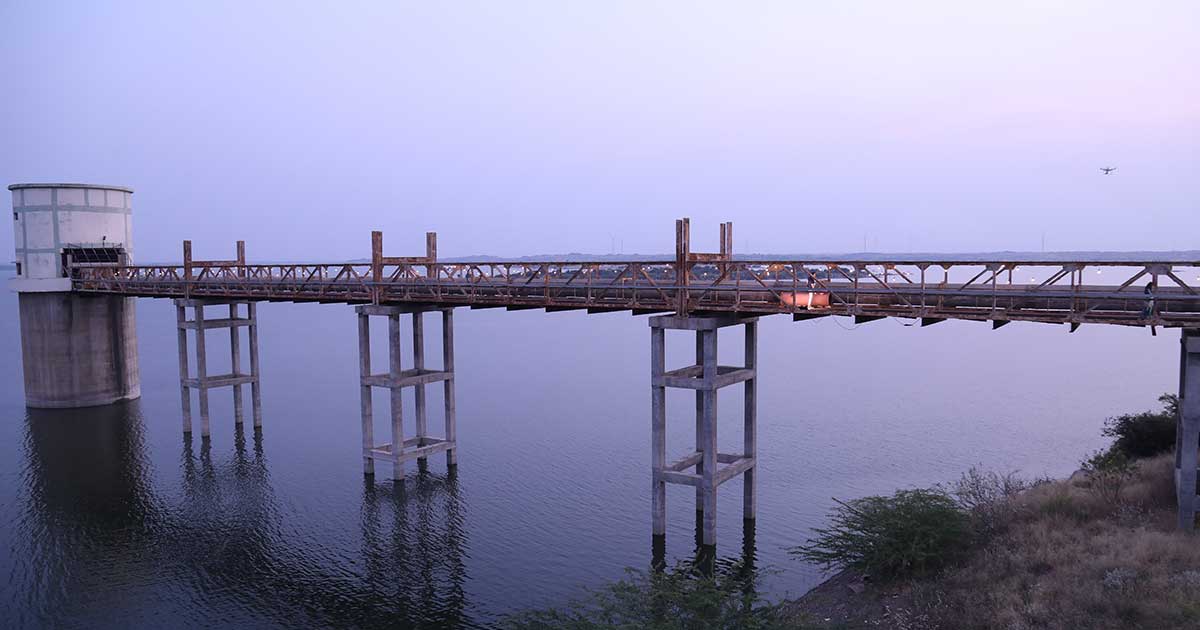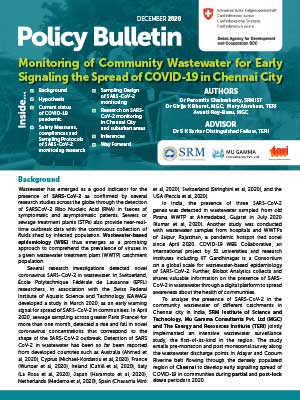Monitoring of community wastewater for early signalling the spread of COVID-19 in Chennai City
Wastewater has emerged as a good indicator for the presence of SARS-CoV-2 as confirmed by several research studies across the globe through the detection of SARSCoV-2 Ribo Nucleic Acid (RNA) in faeces of symptomatic and asymptomatic patients.

Sewers or sewage treatment plants (STPs) also provide near-real-time outbreak data with the continuous collection of fluids shed by the infected populations. Wastewater-based epidemiology (WBE) thus emerges as a promising approach to comprehend the prevalence of viruses in a given wastewater treatment plant (WWTP) catchment population. To analyse the presence of SARS-CoV-2 in the community wastewater of different catchments in Chennai city in India, SRM Institute of Science and Technology, Mu Gamma Consultants Pvt. Ltd (MGC) and The Energy and Resources Institute (TERI) jointly implemented an intensive wastewater surveillance study, the first-of-its-kind in the region.
The study findings correlate with the COVID-19 data in Chennai. Being an early, cost-effective, unbiased community-level indicator of the presence of COVID-19 and also of ‘hotspots’ within a community, the study proves to be crucial for risk mitigation decisions. The study also has enormous relevance for a country like India, where more than 70% of the wastewater generated is directly discharged to water bodies.
Though the virulence of SARS-CoV-2 in wastewater is not evident, the outflow of sludge and water effluents from Wastewater treatment plants (WWTPs) is of public health concern. This study has the potential of high replicability in urban settings of India for increasing the coverage of wastewater monitoring and surveillance towards COVID-19 and for scientifically informed decisions to implement public health intervention strategies consistent with legal and ethical considerations.


